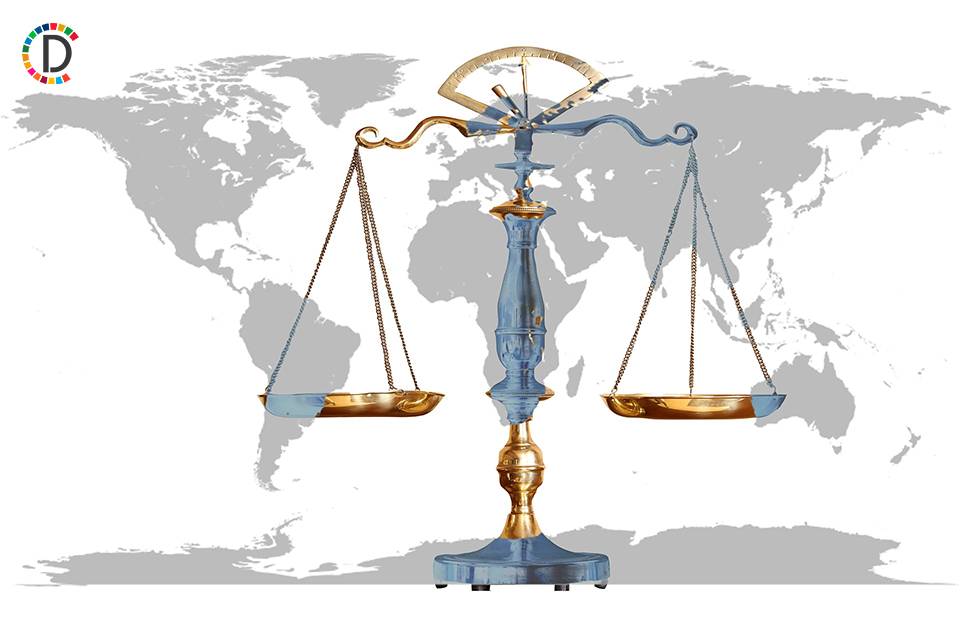SC agrees to reexamine case of death row convict
We believe that granting this remedy is therefore a legitimate, and indeed compelling exercise of the Courts plenary power under Article 32 of the Constitution of India to secure the effective enforcement of fundamental rights, the bench said.The contemporary Indian society no longer conceived criminal punishment purely in retributive terms, but also measured the quantum of a sentence by its capacity to preserve the possibility of human reformation, it said.Dupares sentencing was confirmed by the apex court in 2014 and his review petition against the November 26, 2014 verdict was dismissed by the apex court on May 3, 2017.

- Country:
- India
The Supreme Court has agreed to reexamine the case of a death row convict punished for raping and killing a minor in 2008.
A bench of Justices Vikram Nath, Sanjay Karol and Sandeep Mehta said the case could be reopened on the point of sentence if guidelines on mitigating factors framed by the apex court in 2022 were not followed at the time of punishment.
Vasant Sampat Dupare, who hails from Nagpur, was punished for raping and killing the four-year-old minor girl in April 2008. The top court upheld the conviction but set aside the 2017 view on sentencing for now and placed the matter before Chief Justice B R Gavai for appropriate directions.
Dupare lured the girl with chocolates, raped her and disfigured her face to avoid identification.
While allowing Dupare's plea, the top court referred to the 2022 verdict in Manoj v. Madhya Pradesh in which it issued several guidelines and mandated trial courts to collect the accused's psychiatric and psychological evaluation report before awarding death.
''We hold that Article 32 of the Constitution of India empowers this court in cases related to capital punishment to reopen the sentencing stage where the accused has been condemned to death penalty without ensuring that the guidelines mandated in Manoj (supra) were followed,'' the bench held on August 25.
Calling it ''corrective power'', the bench underlined its precise use in rigorously applying the safeguards in the 2022 verdict to ensure the condemned were not deprived of the fundamental rights.
The top court said the majesty of the Constitution was not in the might of the state but in its restraint.
When the court contemplates capital punishment, it enters a domain where justice must be tempered by conscience and guided by the unwavering promises of equality, dignity and fair procedure, it added.
''A Constitution that proclaims liberty and dignity as its first commitments cannot permit the State to end a human life unless every safeguard of fairness has been honoured and every civilising impulse of the law has been heard. The question is never only what penalty a crime might merit, it is first whether the machinery of the Republic has honoured every safeguard that makes punishment lawful in a constitutional democracy,'' it said.
The bench went on, ''In the narrow space between guilt and the gallows, a robust Constitution demands that we pause, look again, and ask whether the process itself has measured up to the high bar that humanity and the rule of law together set.'' The apex court said the petitioner's request for a new sentencing hearing squarely fell within Article 32 of the Constitution of India.
''The relief sought is narrowly tailored as it does not disturb the conviction or reopen evidentiary findings but merely insists that the ultimate penalty be imposed, if at all, through the procedural safeguards now recognised as integral to a fair and individualised sentence. We believe that granting this remedy is therefore a legitimate, and indeed compelling exercise of the Court's plenary power under Article 32 of the Constitution of India to secure the effective enforcement of fundamental rights,'' the bench said.
The contemporary Indian society no longer conceived criminal punishment purely in retributive terms, but also measured the quantum of a sentence by its capacity to preserve the possibility of human reformation, it said.
Dupare's sentencing was confirmed by the apex court in 2014 and his review petition against the November 26, 2014 verdict was dismissed by the apex court on May 3, 2017. He then filed mercy petitions before Maharashtra Governor and President, which were rejected in 2022 and 2023, respectively.
(This story has not been edited by Devdiscourse staff and is auto-generated from a syndicated feed.)










